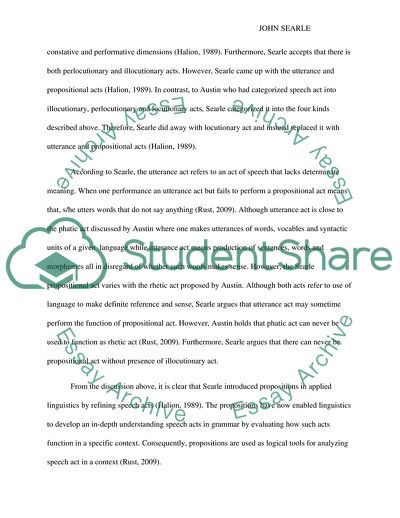Contributions of John Rogers Searle to Applied Linguistics Research Paper. https://studentshare.org/english/1782102-the-important-contribution-of-john-rogers-searle-to-applied-linguistics
Contributions of John Rogers Searle to Applied Linguistics Research Paper. https://studentshare.org/english/1782102-the-important-contribution-of-john-rogers-searle-to-applied-linguistics.


